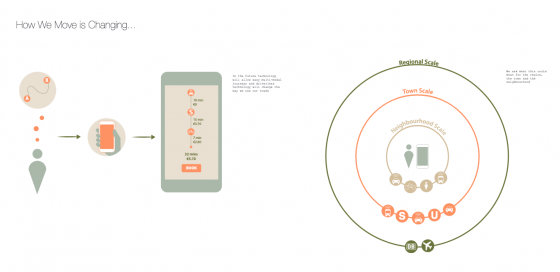Headlines
- ‹ previous
- 11 of 24
- next ›
Car-free in the Twenty Minute City
Friday 13th March, 2020
This provocation think-piece "Car-free in the Twenty Minute City", spearheaded and penned by Steve Connor of Creative Concern, is the outcome of a group of residents, activists and experts coming together after two workshop sessions in central Manchester.
This vision, and more recent think-piece, has been discussed and thought of over a number of years, but gathered new momentum in response to the Climate Emergency we are all facing and that Manchester City Council declared in 2019. Our Associate Principal, Lorenza, has been one of a number of contributors to date, donning both her professional hat and also as a longstanding Manchester resident and campaigner for a city fit for its people and fit for the future, where the car is a guest and not the guest of honour.
Steve Connor presented this think piece at the recent Walk Ride GM on Wednesday the 11th of March 2020 wich was well received both on the night and on various social media platforms.
His presentation slide deck can be viewed here.
This text is meant to be a piece to spark real debate, to offer the opportunity of a story that can visualise that change, a fresh beginning in order to let that story develop and also help form a strategy that can make this vision become reality. After all we know a city that continues to be car-centric is not a city fit for the future.
URBED of course is no stranger to visions of cities that put their people first, creating liveable places for all. Most recently Vicky and David were invited to take part in the DAM- Lab workshop “Living the Region” at the Frankfurt Hypermotion fair. The workshop was organised by the Deutsches Architekturmuseum (DAM) and designed as live project taking place within the fair itself. Vicky and David’s team proposal encouraged people to “leave the car at the gate”, beyond which point public transport, walking and cycling takes over, with smaller “micro” transport systems or shuttles provided for people with reduced mobility.
The boards produced to summarise the workshop output can be seen here.


